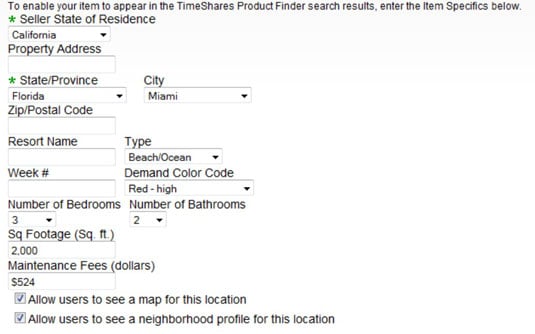In 2017, annual upkeep costs averaged $980 however can be in the thousands if your timeshare is high-end in its place and size.2 And it becomes worse. The fees aren't fixedthey go up a couple of percent every year! So, the worth of your timeshare does not rise, but the cost of maintaining it does? That's no enjoyable, and it truly takes the shine off any timeshare vacation - how to cancel a wyndham timeshare contract. So, your next-door neighbor just got back from an amazing summertime break in the Caribbean. You 'd like your household to getaway there too, however there's one issue: Your timeshare is in Mexico, which leaves you racked with timeshare guilt.
What if you do decide to skip a year at that Mexican timeshare? You still have to pay those pesky maintenance costs, whether you like it or not! That's a thousand dollars or so that could have gone towards booking your trip to the Caribbean. Instead of purchasing a timeshare, you might book a resort or rental at a various destination every year. And even if you choose the same area every year, a timeshare stuck in the exact same location could imply you're losing out on a brand-new resort down the road with even better views and facilities (and no annual costs)! If you do decide to avoid vacationing at your timeshare one year and desire to rent it to another person, bewareit's difficult! Timeshare business aren't keen on customers renting their timeshares to strangers.
And if they do, there are rules and constraints in location. You'll pay a cost, and the company may take a commission from you. Why? Because they are completing versus you to lease their own stock! You'll likewise pay a cleansing charge when your guest has left. And you'll be charged a cost if the visitor causes damage to the residential or commercial property. It's clear, when you have actually paid these fees and commissions, you won't see much in the way of lease. This is all assuming someone really wishes to lease your timeshare. If it's not in a popular destination, you could find it difficult to produce interest! If you've paid money for your timeshare, that cash is basically gone in regards to you ever wishing to get any of it back.

The 3-Minute Rule for What Is My Amelia Resort Condominum Timeshare Worth
This is your hint to run for the hills! Why? Due to the fact that a timeshare isn't like a routine home, so the loan on it isn't like your routine mortgage, either. Home loan business understand how timeshares lose their value practically immediately upon sale, so they're not lining up to provide individuals the cash to purchase them! Special timeshare home mortgages come with much higher rate of interest than regular mortgages. And that's even more of your cash you will not see again.
A timeshare, in streamlined terms, refers to a plan in which several joint owners can use a trip property throughout an allocated amount of time (often the exact same week every year) - how to get out of your timeshare on your own. Timeshares are most frequently specific units, condominiums, or rental properties located on at a specific "house" resort residential or commercial property. When you own a trip house, you are the sole owner of a physical residential or commercial property that you can go to at your leisure, 365 days a year, Additional reading however you also spend for the amount of the house as well as the cost of year-round upkeep. With a timeshare, you own an allotted quantity of "time" throughout which you have access to your resort accommodations, and the amount you pay for ownership and maintenance is proportionally less.
Property with a specific type of ownership or use rights Barnsdale Hall Hotel (UK) timeshare lodges. On the grounds of the Finest Western Hotel are a number of timber A-frame chalets. A timeshare (in some cases called vacation ownership) is a property with a divided kind of ownership or http://remingtonobma222.lowescouponn.com/fascination-about-how-to-get-a-timeshare usage rights. These properties are usually resort condominium units, in which multiple parties hold rights to use the home, and each owner of the same lodging is allocated their period of time. Systems may be sold as a partial ownership, lease, or "right to utilize", in which case the latter holds no claim to ownership of the residential or commercial property.
The 10-Second Trick For What Happens In A Timeshare Foreclosure

The term "timeshare" was coined in the UK in the early 1960s, broadening on a trip system that became popular after The second world war. Vacation home sharing, also understood as holiday house sharing, involved 4 European households that would purchase a holiday cottage jointly, each having unique use of the residential or commercial property for among the 4 seasons. They rotated seasons each year, so each family enjoyed the prime seasons equally. This idea was mostly utilized by related families due to the fact that joint ownership requires trust and no residential or commercial property manager was involved. Nevertheless, couple of families trip for a whole season at a time; so the holiday house sharing residential or commercial properties were typically uninhabited for long periods.
It took practically a decade for timeshares in Europe to progress into an efficiently run, successful, business venture. The first timeshare in the United States was begun in 1974 by Caribbean International Corporation (CIC), based in Fort Lauderdale, Florida. It offered what it called a 25-year holiday license instead of ownership. The business owned two other resorts the holiday license holder could alternate their getaway weeks with: one in St. Croix and one in St. Thomas; both in the U.S. Virgin Islands. The Virgin Islands homes began their timeshare sales in 1973. The agreement was simple and uncomplicated: The company, CIC, promised to maintain and supply the specified accommodation type (a studio, one bedroom, or more bed room unit) for usage by the "license owner" for foreclosure fortunes cancellation a period of 25 years (from 1974 to 1999, for example) in the defined season and number of weeks concurred upon, with just 2 extra charges: a $15.
The agreement had a $25. 00 switching cost, ought to the licensee decide to use their time at one of the other resorts. The agreement was based on the fact that the expense of the license, and the small per diem, compared to the predicted boost in the cost of hotel rates over 25 years to over $100. 00 per night, would save the license owner many trip dollars over the span of the license agreement. Between 1974 and 1999, in the United States, inflation enhanced the existing cost of the daily to $52. 00, validating the cost savings presumption.
The smart Trick of Timeshare Loans What If Defaulted That Nobody is Discussing
The only specification was that the $15. 00 daily must be paid every year whether the unit was occupied or not. This "should be paid yearly charge" would become the roots of what is known today as "upkeep fees", as soon as the Florida Department of Real Estate became associated with regulating timeshares. The timeshare concept in the United States caught the eye of numerous entrepreneurs due to the massive revenues to be made by offering the same room 52 times to 52 different owners at an average cost in 19741976 of $3,500. 00 weekly. Soon thereafter, the Florida Property Commission actioned in, enacting legislation to regulate Florida timeshares, and make them charge simple ownership deals.